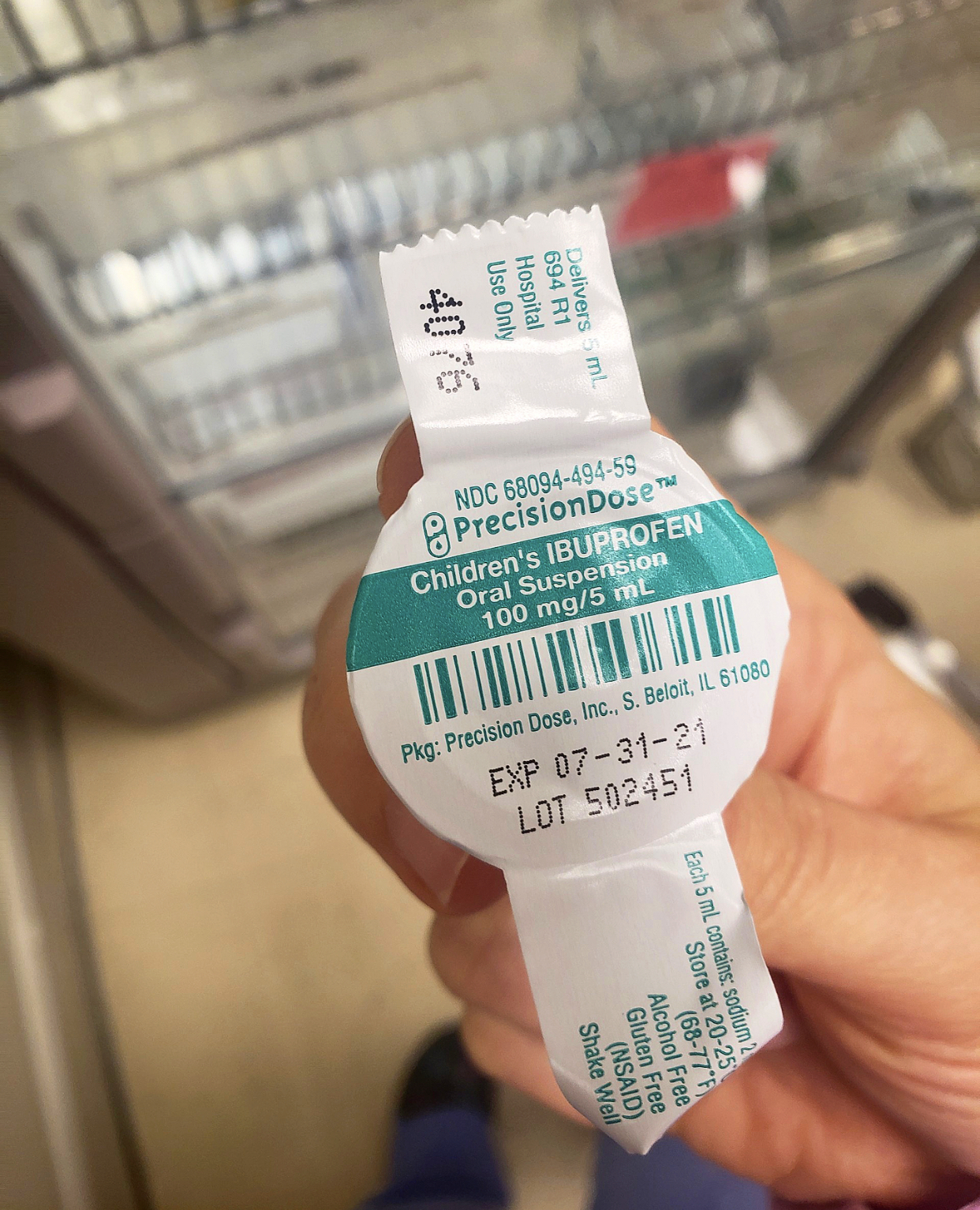Medication Monday: Caution with Ibuprofen

One of the most commonly used medications in children is Ibuprofen. It is an NSAID and because of it’s non-steroidal anti inflammatory effects it can help with pain and inflammation. It can also help reduce fever. However, there are some important things to know about Ibuprofen. Let’s talk about it below ⬇️
Dosage forms:
Unlike adults, children do not have standardized doses. Dosing is always based on the patient’s weight in pediatrics.
✨PO solution ➝ Infant’s Ibuprofen vs. Children’s Ibuprofen.
⚠️Caution with these two! They have two different concentrations and can be easily confused. When giving ibuprofen to a patient make sure you ALWAYS look at the concentration and calculate accordingly. (e.g 5mL of Children’s Ibuprofen would be 100mg where as 5 ml of infant’s ibuprofen would be 200mg.)
✨Chewable tablets
✨Tablets (non-chewable)
Frequency:
✨PO, q6-8hrs, PRN
Contraindications:
Ibuprofen should not be given to:
✨Patients under 6 months of age ➝ due to risk of renal failure, Reye’s syndrome and GI effects.
✨Patients with renal impairment
✨Patients with allergies to NSAIDs or Ibuprofen, Motrin or Advil
Use with caution in patients with:
✨Asthma ➝ studies have shown that NSAIDs can trigger asthma exacerbations.
✨GI discomfort ➝ nausea, vomiting, GI bleeding (especially with prolonged use)
✨Coagulation disorder ➝ keep in mind patients who have coagulation disorders have increased risk of bleeding. Ibuprofen is an NSAID. NSAIDs increase risk of bleeding.
Do not use for prolonged periods of time as this can cause serious GI symptoms such as ulcer or GI bleeding.
Let’s work on some 📚NCLEX practice questions!
NCLEX Question Source: Nurseslabs.com
💡Which of the following groups of clients are most at risk for GI bleeding from the use of NSAIDs?
A. Patients with dysmenorrhea
B. Patients with headaches
C. Patients with arthritis
D. Patients with renal failure
💡To minimize the risk of dyspnea and GI bleeding, OTC ibuprofen is given:
A. IV
B. Orange Juice
C. On an empty stomach
D. With meals
💡 Which of the following NSAIDs is used to prevent thrombosis?
A. Ibuprofen
B. Toradol
C. Aspirin
D. Naproxen
📝 Answers will be posted in comments section below!
Share this:
Related Posts
What’s in a Pediatric Crash Cart? Nursing Students read NOW!
A pediatric crash cart is a mobile unit containing essential equipment and medications required for…
Share this:
How to Become a Confident Nurse
If you are anything like me, and let’s face it (like every nurse…




therneducator | 7th Sep 20
NCLEX Practice Question 1:
Correct answer: C. Patients with arthritis are taking the drugs for prolonged periods of time and may take higher doses. Choices A and B are incorrect because the use of NSAIDs with these clients is intermittent. Renal failure is a contraindication for NSAIDs because most of the drug is excreted through the kidneys.
NCLEX Practice Question 2:
Correct answer: D. Taking ibuprofen with meals will decrease GI irritation. Ibuprofen is never given IV. Orange juice may promote acidity and increase gastric irritation. Ibuprofen will cause GI upset if given on an empty stomach.
NCLEX Practice Question 2:
Correct answer: C. Aspirin prevents platelet aggregation and thereby has an anticoagulant effect.